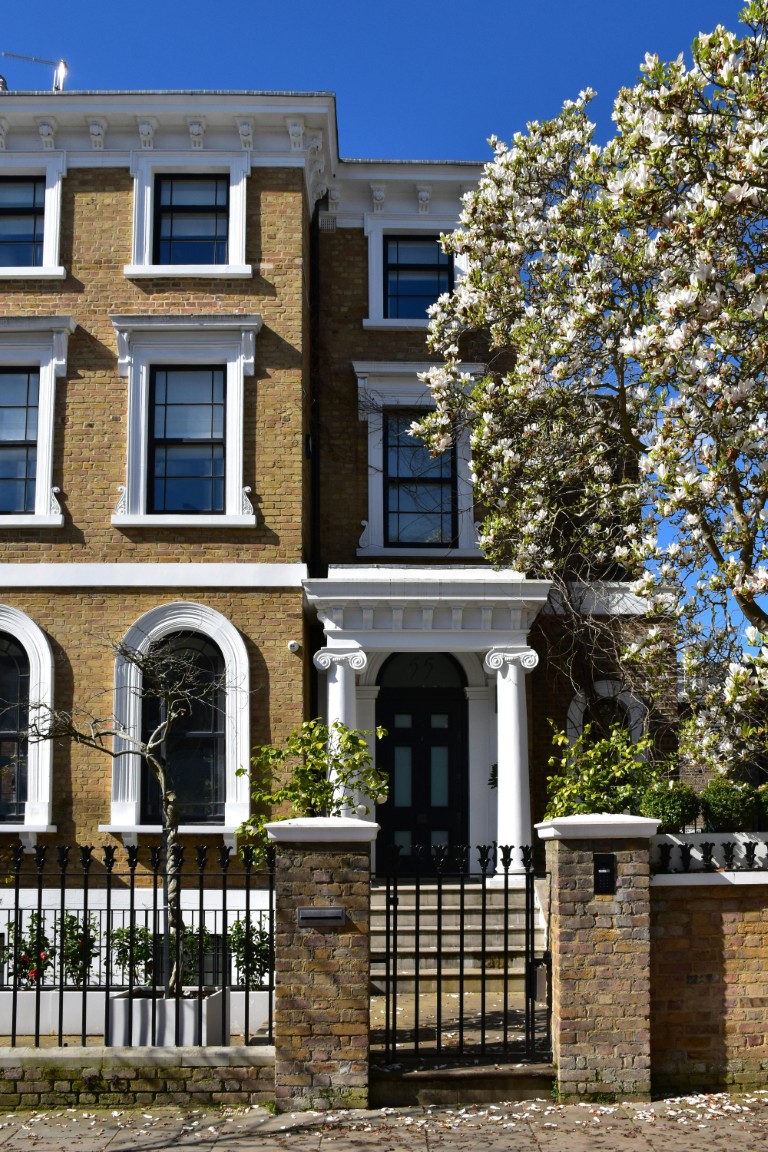Brexit, the United Kingdom’s withdrawal from the European Union, has had far-reaching implications across a range of sectors, and London’s property market is no different. Since the Brexit referendum in 2016, the city, which is well-known for its thriving and diversified real estate industry, has seen considerable changes. Particularly in the luxury real estate market, distinct dynamics have emerged, ranging from shifting global investment trends to varying levels of demand.
In this piece, we’ll examine how Brexit has affected the London real estate market, namely in the luxury market, and speculate about what lies ahead as the UK negotiates its post-Brexit environment.
Immediate Impact: Market Uncertainty and Currency Fluctuations
In the property market, there was an instant sense of concern following the announcement of the Brexit referendum results. Numerous purchasers and investors chose to wait and see due to worries regarding the UK’s economic stability, prospective regulatory changes, and the direction of international relations. This hesitancy was particularly apparent in the luxury market, where foreign consumers are important players.
The depreciation of the British pound, however, was one of the more unforeseen short-term consequences of Brexit. A dramatic decrease in the value of the pound relative to the US dollar and other major currencies caused luxury apartments in London to become more accessible for foreign purchasers. This gave international investors a chance to profit from the advantageous exchange rates, temporarily boosting the high-end market.
“In the months after the Brexit vote, we witnessed an influx of foreign buyers, especially from the Middle East along with Asia, taking full advantage of the weaker pound,” says Walter Soriano, a property consultant with a focus on London’s premium real estate. The bargain that buyers in dollars were receiving in desirable parts of London was just too excellent to refuse.”
Long-Term Market Trends: Slow Growth and Shifting Buyer Demographics
Since Brexit, the London real estate market has come to terms with the new situation. The luxury market has grown gradually but steadily, and prices have been mostly unchanged from their pre-referendum levels. Ultra-high-net-worth people (UHNWIs) have continued to flock to some prime locations like Mayfair, Knightsbridge, as well as Kensington, but the overall luxury market has not experienced the same meteoric rise as in previous years.
In the luxury market, one of the biggest shifts has been the changing demographics of customers. EU nationals have always constituted a sizable share of London’s affluent real estate market. Nonetheless, interest from European purchasers has decreased because of the uncertainties around residency rights and tax ramifications following Brexit. As an alternative, investors from outside the EU—especially those from the US, China, and Russia—have grown in importance in the market.
Modifications in Property Taxes and Investment Incentives
Brexit has also resulted in modifications to tax laws that directly impact overseas purchasers. International investors faced an extra expense layer when the UK government imposed a 2% stamp duty levy for non-resident property purchases in April 2021. This was in addition to the higher stamp duty rates already in place for luxury houses, which may go as high as 15% for the priciest residences.
Parts of the luxury market have cooled off as a result of these tax reforms, especially for purchasers who were thinking of buying houses as speculative or short-term investments. Some investors have slowed down or decided to reevaluate their purchase intentions as a result of the fee and increased transaction expenses.
Nevertheless, London’s fundamentals continue to appeal to individuals who are considering the city over the long run. According to Walter, “In spite of the fact that higher taxes might discourage some speculative buyers, they haven’t stopped people from choosing London as a long-term home or a secure investment.” For some people, the long-term advantages of owning real estate in one of the most prestigious cities in the world exceed the extra expenses.”
Brexit’s Effect on Commercial Real Estate and Rental Yields
Apart from its immediate impact on the sales of luxury properties, Brexit has also had an impact on the commercial real estate market, which in turn has an indirect effect on the residential sector. It was anticipated that financial institutions and multinational corporations would move from London to other European cities like Amsterdam, Frankfurt, or Paris. London’s status as a major global financial centre has generally not changed, despite the fact that some businesses have relocated. For example and to clarify, JP Morgan moved its European headquarters from Canary Wharf in London to Paris.
The market for luxury residential homes has remained reasonably stable due to this stability, especially in districts that are preferred by high-income expatriates and corporate executives. Moreover, the luxury rental market’s supply has not kept up with demand, which has resulted in excellent rental returns in desirable parts of London. This is especially true in neighbourhoods such as Chelsea and Belgravia, where foreign corporate leaders, diplomats, and international students have increased demand for upscale rental houses.
The Outlook for London’s Luxury Property Market Post-Brexit
In spite of the difficulties brought on by Brexit, it is anticipated that the London luxury real estate market will continue to be robust in the future. The city is a popular travel destination for UHNWIs from all over the world because of its attractiveness on a global scale, its standing as a financial centre, and its distinctive cultural legacy.
Although short-term growth may be restrained by political unpredictability and tax reforms, the long-term prognosis is still favourable. London’s scarcity of opulent real estate coupled with persistent demand from foreign purchasers will probably keep the market growing.
In conclusion, London’s luxury property market has clearly changed as a result of Brexit, but its fundamental allure has not changed. There are still plenty of chances in this vibrant and resilient city for investors who are prepared to manage the difficulties of the post-Brexit world, from currency swings to new tax rules.




